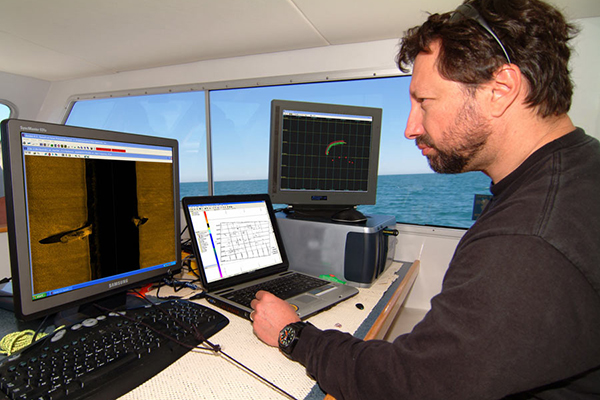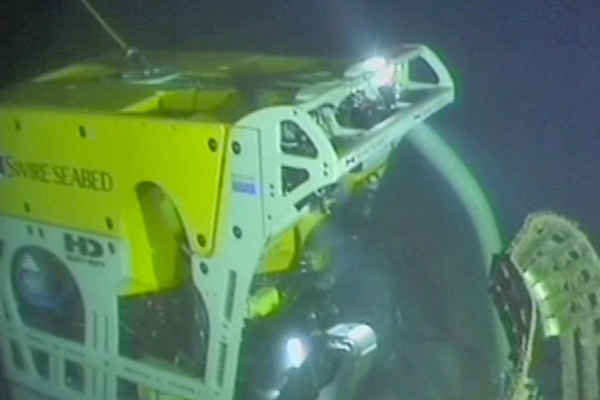Robotic recovery
Underwater robotics expert to share experience of retrieving Apollo 11 engines
3 p.m., March 7, 2014--As Apollo 11 launched astronauts to the moon in 1969, the engines that helped rocket the spacecraft into lunar orbit fell back to Earth and splashed into the ocean. There the rockets sat for more than four decades — until last year when explorers located the historic equipment 14,000 feet below the surface.
One of the recovery team members, Vince Capone, will share his experiences helping retrieve the engines from the seafloor at a special seminar open to the University of Delaware community on Wednesday, March 12, at 1:30 p.m. in Robinson Hall, Room 206, sponsored by the College of Earth, Ocean, and Environment (CEOE).
Research Stories
Chronic wounds
Prof. Heck's legacy
Seating is first-come, first-served. The seminar, titled “Robotic Recovery of the Rocket that Took Man to the Moon: Apollo 11 and the Deep Blue Sea,” can also be viewed via ITV from Cannon 202 at the Hugh R. Sharp Campus in Lewes.
One of the leading sonar instructors in the country, Capone is president and CEO of the marine technology training company Black Laser Learning. Based in Hockessin, Del., Capone teaches military and industry personnel how to operate side scan sonar, underwater vehicles and other marine surveying tools.
Sonar scanning helped a crew organized by Amazon founder Jeff Bezos locate Apollo 11’s F11 rockets deep within the Atlantic Ocean. The team used remotely operated vehicles (ROVs) to recover enough parts to refashion two of the rockets after working for three weeks aboard the research vessel Seabed Worker. After proper preservation measures and reconstruction, the recovered artifacts will be displayed at the Smithsonian.
Capone will share how the operation ran with UD students at the upcoming seminar. A colleague and collaborator of CEOE faculty member Art Trembanis, Capone regularly guest lectures on campus and provides guidance on students’ field efforts.
Trembanis and other CEOE scientists regularly use underwater robots in oceanographic research and seafloor mapping off Delaware’s coast and around the world, from Antarctica to Turkey to Palau.
“He’s a real asset for us,” Trembanis said. “He’s a wonderful supporter of our work and our students.”
Capone and entire Apollo 11 rocket recovery team will be honored at the Explorers Club in New York later this month. The storied scientific society gives flags to explorers to take on expeditions around the world. In fact, Neil Armstrong and Buzz Aldrin took one to the moon, and Bezos’ crew carried one to retrieve their rockets decades later.
“It’s kind of come full circle,” Trembanis said.
Article by Teresa Messmore












